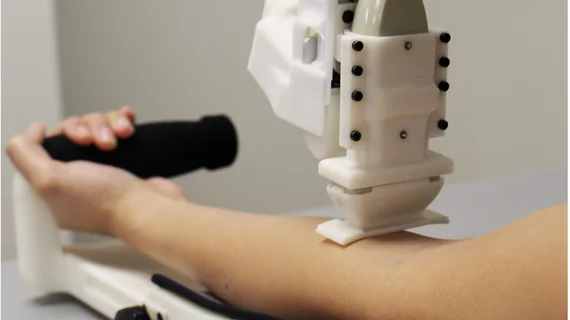Meet the robot that draws blood better than humans
In the near future, patients may have their blood drawn and tested by an advanced robot—and it’s a move that would benefit both patients and healthcare providers.
Researchers created and tested the robot, publishing their findings in Technology.
“Obtaining venous access for blood sampling or intravenous fluid delivery is an essential first step in patient care,” wrote lead author Josh Leipheimer, a biomedical engineering student at Rutgers University-New Brunswick, and colleagues. “However, success rates rely heavily on clinician experience and patient physiology. Difficulties in obtaining venous access result in missed sticks and injury to patients, and typically require alternative access pathways and additional personnel that lengthen procedure times, thereby creating unnecessary costs to healthcare facilities.”
The device uses ultrasound imaging to locate and draw blood from the patient’s veins. It can also handle blood samples once they have been drawn.
Leipheimer and colleagues found that their robot performed these tasks as well, or even better, than a human healthcare provider. It had an overall success rate of 87% and a success rate of 97% for “nondifficult venous access.”
The team sees a future when ambulances, emergency rooms and hospitals all embrace this technology.
“A device like ours could help clinicians get blood samples quickly, safely and reliably, preventing unnecessary complications and pain in patients from multiple needle insertion attempts,” Leipheimer said in a prepared statement.

